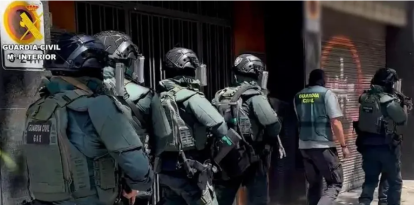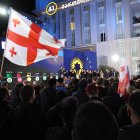Europe: electoral authority confirms victory of the ruling party in Georgia after the recount
The opposition decried electoral fraud after the publication of results that gave an absolute majority in the Parliament to the Government party, Georgian Dream.

The pro-European opposition organizes a demonstration in Georgia.
Partial counting of votes in Georgia's hotly contested parliamentary elections has confirmed the victory of the ruling party, Georgian Dream. This was reported Thursday by the electoral authorities, after opposition parties denounced violations and the United States and the European Union called for a clarification of the results.
The central electoral commission told AFP that the recount in about 12% of the polling stations, which represented 14% of the votes, "has not caused a significant change in the official results previously announced", and that "the final counts have only varied slightly in about 9% of the recounted polling stations".
The election results thus stand and give 54% of the votes counted to the party in government. Meanwhile, the coalition of pro-European parties, in opposition, has garnered just over 37%of the vote.
The opposition, which wants integration into the European Union and Western dynamics, has for years accused Russian Dream of favoring a closer relationship with Putin's Russia. This summer, the country's president, Salome Zourabichvili, tried unsuccessfully to veto the law on Foreign Agents passed by Parliament and government, which limits political opposition.
There is a strong feeling of disillusionment with the government in the streets of Georgia's major cities and the mobilization of civil society is significant. Last summer was marked by a series of protests that left several dozen people arrested, including foreign nationals including two Americans.
The anti-Russian sentiment is heavily influenced by the common past shared by the two countries. In 2008, Moscow ordered an armed intervention in the Georgian region of Ossetia, which has a majority ethnic Russian population. This rejection increased after the Russian invasion of Ukraine in 2022.
RECOMMENDATION























